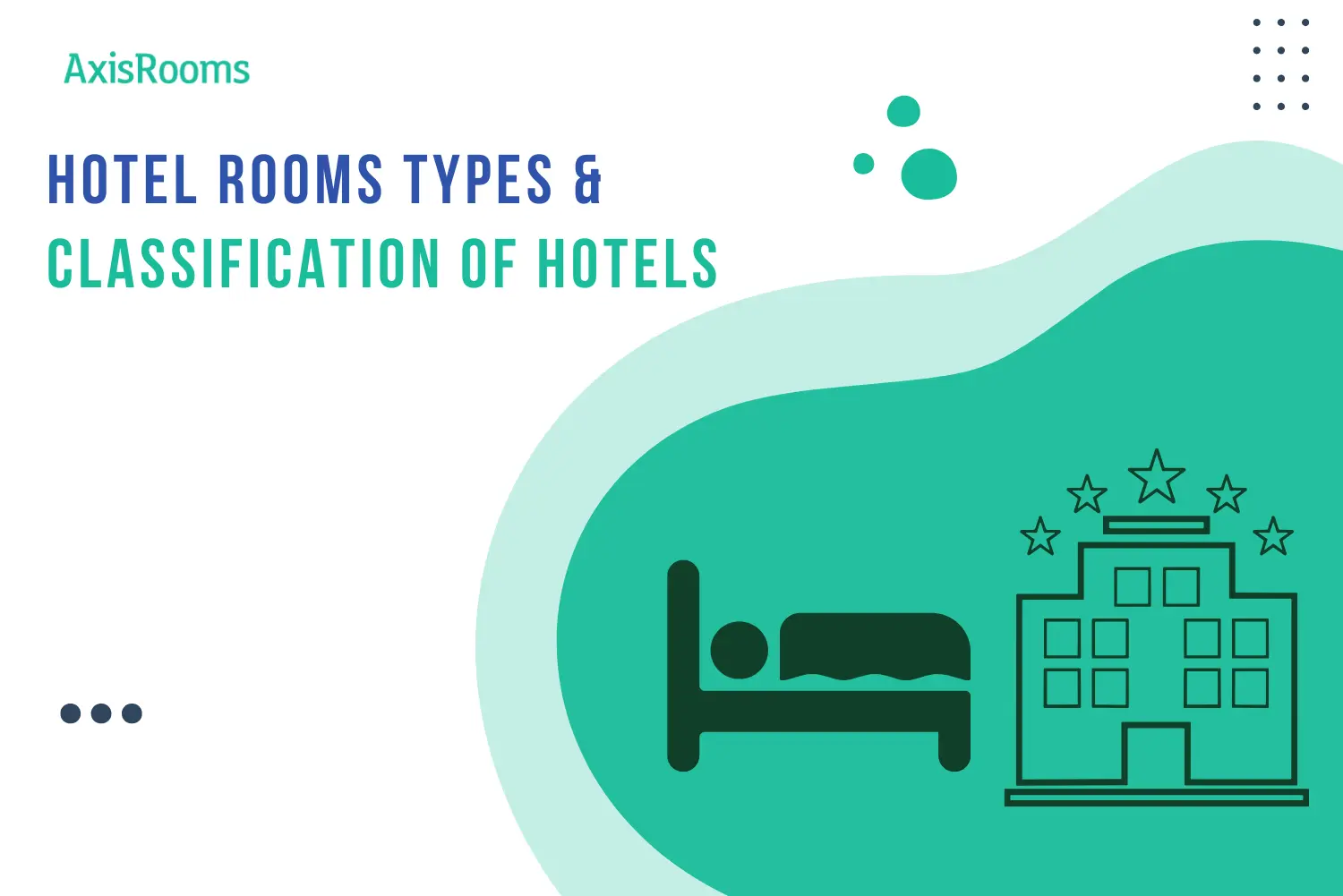For travelers and hoteliers, knowing about different types of hotels is essential. It helps travelers pick the right place to stay based on their needs, whether they're looking for a budget hotel for a quick trip or a luxurious resort for a long vacation. For hotel owners, understanding what guests want helps them improve their services and attract more visitors.
Different classifications of hotels
Travelers benefit from knowing what types of hotels are available. A family might prefer a hotel with a pool and activities for kids, while a business traveler might need a place with good Wi-Fi and a conference room.
By understanding various options available, guests can make choices that align with their preferences and needs. Meanwhile, hotel owners can enhance the overall guest experience by recognizing the specific desires of different groups—such as amenities, pricing, and location. This insight allows hotels to better meet their guests' expectations and create a more satisfying stay.
Star classification of Hotels
Hotel Star Classification offers a quick way to gauge hotel quality
- One Star: These hotels provide basic accommodations with minimal amenities, making them perfect for budget travelers seeking affordable and no-frills lodging options.
- Three Stars: These are mid-range hotels that offer a comfortable stay with a range of additional amenities, such as on-site dining and fitness facilities, catering to travelers who value convenience without breaking the bank.
- Five Stars: These high-end hotels deliver luxurious experiences characterized by exceptional service, elegant design, and exclusive amenities, attracting guests who desire indulgence and top-notch hospitality during their stay.
Classification of hotels based on level of service
- Budget Hotels: These accommodations focus on affordability and simplicity, making them an ideal choice for travelers on a tight budget or those seeking a no-frills experience for short stays. Guests can expect basic amenities and essential services that meet their fundamental needs without extra costs.
- Mid-Range Hotels: Offering a comfortable environment, mid-range hotels strike a balance between cost and amenities, providing guests with thoughtful features such as complimentary breakfast, fitness centers, and spacious rooms for an enjoyable stay. These hotels cater to both leisure and business travelers looking for quality service without overspending.
- Luxury Hotels: Known for their exquisite offerings, luxury hotels provide an unparalleled level of service with personalized attention to detail, including concierge services, fine dining options, and lavish spa facilities. Guests can indulge in a lavish experience, enjoying exclusive amenities and exceptional hospitality that elevates their stay to a memorable occasion.
Hotels catering to specific groups of travelers:
- Business Hotels: Geared towards corporate clients, these hotels provide essential facilities such as meeting rooms, conference spaces, and a range of business services to support professionals during their stay. Their strategic locations often near business districts make them a convenient choice for work-related trips.
- Resorts: Nestled in prime vacation locations, resorts offer a wealth of recreational activities and amenities, including pools, spas, and organized excursions, allowing guests to unwind and enjoy leisure time. These properties often boast stunning views and direct access to beaches or nature, enhancing the overall holiday experience.
- Family Hotels: Crafted with families in mind, these hotels feature spacious accommodations, such as family suites or adjoining rooms, along with child-friendly amenities like play areas, children's menus, and organized activities. They prioritize making family stays enjoyable and stress-free, catering to the needs of both adults and kids.
Hotel Classification based on Ownership Structure
Hotels can also be classified based on their ownership models:
- Independent Hotels: Owned and operated by individuals or small companies, these hotels often emphasize personalized service and unique character, offering guests a distinct experience that reflects local culture and charm. Independent hotels can vary widely in style and amenities, providing travelers with diverse options.
- Chain Hotels: Part of a larger brand or franchise, chain hotels maintain standardized quality and services across multiple locations. They often provide loyalty programs and consistent experiences, making them a popular choice for travelers seeking familiarity and reliability during their stays.
- Boutique Hotels: Typically smaller and more intimate than chain hotels, boutique hotels focus on delivering a unique and stylish atmosphere, often with themed décor and personalized service. These properties cater to guests looking for a distinctive experience, blending comfort with local flair and creativity.
Classification of Hotels according to size
- Small Hotels: With fewer than 25 rooms, small hotels foster a cozy and intimate atmosphere, enhancing personalized service and connections between guests and staff. This setting creates a welcoming, home-like environment where guests can truly unwind.
- Medium Hotels: Ranging from 25 to 300 rooms, medium hotels strike a balance between comfort and amenities, catering to various guest needs. They often include facilities like restaurants and fitness centers, making them ideal for both leisure and business travelers.
- Large Hotels: With over 300 rooms, large hotels provide a wide array of amenities, including multiple dining options and extensive recreational facilities. Their scale allows for hosting large groups and events, offering guests ample opportunities for entertainment and relaxation.
Types of Hotels
- Boutique Hotels: Boutique hotels are characterized by their unique design and personalized service, offering a distinctive experience that reflects the local culture. These smaller establishments create an intimate atmosphere where every guest feels valued and special.
- Chain Hotels: These hotels are a part of chain and usually provide quality and consistent services to the clients. Travelers appreciate the reliability and loyalty rewards that come with staying at these places.
- Resorts: Resorts are usually situated in scenic locations that offer wide range of relaxation options. They cater to guests seeking rejuvenation and adventure, offering everything from spas to water sports.
- Business Hotels: Tailored for corporate travelers, business hotels feature essential amenities like meeting rooms, high-speed internet, and convenient locations near business districts. These hotels focus on providing a productive environment for professionals on the go.
- Budget Hotels: Budget hotels offer basic accommodations at economical prices, making them ideal for cost-conscious travelers. While they may lack frills, they prioritize comfort and cleanliness for a practical stay.
- Luxury Hotels: Luxury hotels provide an opulent experience with high-end amenities and exceptional service. Guests can indulge in gourmet dining, lavish spa treatments, and personalized attention throughout their stay.
- Bed and Breakfasts: Bed and breakfasts offer a charming and homey atmosphere, typically featuring cozy rooms and a complimentary breakfast. These establishments often reflect the warmth of local hospitality and provide a unique glimpse into the community.
- Extended-Stay Hotels: Designed for long-term visitors, extended-stay hotels come equipped with kitchen facilities and spacious living areas. These accommodations provide a comfortable home-like experience for guests needing to settle in for a while.
- Hostels: Hostels are budget-friendly options that often feature shared dormitory-style rooms, attracting backpackers and young travelers. They foster a social environment, allowing guests to connect with one another while keeping costs low.
- Motels: Motels are located near highways, they cater to travelers seeking quick and accessible accommodations. With straightforward amenities, they provide a practical solution for those on long journeys.
Understanding different types of hotels helps both travelers and hotel owners. Travelers can find accommodations that fit their needs, while owners can enhance their services to meet guest expectations. Whether it’s a charming boutique hotel or a large resort, knowing what each type offers can lead to better travel experiences.


